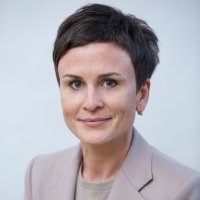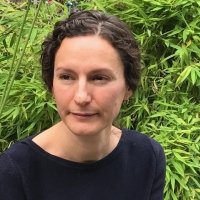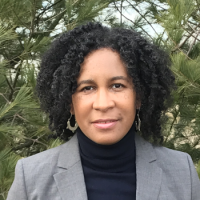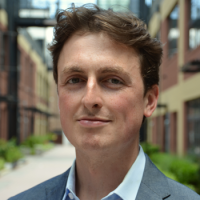Reframing Vaccine Diplomacy Amid Strategic Competition: Lessons from COVID-19
COVID-19 challenged international health cooperation, leading to increased international rivalry and growing nationalism. The lack of COVID-19 vaccine cooperation can be partially explained by growing national security concerns, as well as by a number of strategic actors and increased “mediatization,” “politicization,” and “financialization” of the global policy response to COVID-19. These issues were heightened by logistical problems and the vaccine manufacturing process generally.
Addressing continuity and change in different actors’ global health policies over time, this panel will try to explore new strategies for vaccine diplomacy while sharing the perspective of less represented voices in health diplomacy. What lessons can be learned from the competitive nature of COVID-19 vaccine diplomacy to better understand the power and struggle of competition in the global health domain? What hidden layers of great power competition, diplomacy, philanthropy, and regional and national dynamics were revealed? How should new multilateral and bilateral phenomena of vaccine cooperation inform the global health policy making and international relations?
Selected Quotes
Achal Prabhala
“The vaccines that we get here [in India] and are in use in many other parts of the world are vaccines, in fact, that the U.S. and Europe have used and then rejected in favor of better alternatives—mRNA technology. The mRNA vaccines (mRNA stands for messenger RNA) are a remarkable technological development that only happened during the pandemic. The problem with them is that, to date, and I’m talking about literally until last week, 93% of all mRNA vaccines that were contracted and supplied went to rich countries.”
“The way that the U.S. and Europe have failed the world is not necessarily by getting 10-year-olds vaccinated before 80-year-old healthcare workers in other countries who haven’t gotten vaccines, but by not having a feasible plan for the world in any sense. And what I mean by that is the technology that was developed with federal monies in Europe and in the U.S. could’ve been shared, could’ve been contracted to other companies in Africa, Latin America, and Asia, so that vaccines could have been developed simultaneously in the quantities that were necessary in the places that they were needed in.”
Donna A. Patterson
“COVID-19 accelerated conversations that had long existed about scaling up research and development and pharmaceutical production on the continent [of Africa]… When you think about this long historical trajectory, it was more profitable for the West and other countries to rely on Africa as a consumer market. So there was less interest in helping produce, and helping fund or partner with people to be able to produce on the continent, and I think COVID really disrupted these conversations. And people were pushing in ways about equity and inequity and vaccine access, and we’ve seen that—if you look right now in terms of the dearth in COVID-19 access, it is the African continent.”
“In terms of gaps in some of the infrastructure… and funding… What can be done? I think the biggest thing is sharing resources, be it technology, be it funding for infrastructure, training, but also rethinking about how people view African pharmaceutical markets. Moving from consumers to producers and partners, equal partners, in this.”
Jessica Sklair
“The very wealthy global elite philanthropists that I’m talking about are really, in my opinion, representative of… broad financial interests... So Gates and the equivalent foundations are really pushing at an ideology which understands poverty, global inequalities, and international development through a very particular ideological framework which is grounded in the idea that capitalism can provide solutions to all of our international development challenges, even though there is no evidence for this and we have seen repeatedly that this is not going to work.”
“I think the future really lies in completely redesigning the global trade architecture. I think the TRIPS waiver needs to go through—this is an opportunity, because it stalled for two years and you would think that a global pandemic would get this conversation started… We all have contributions [to make]… One important contribution is to really focus on blowing up that conversation… about capacities in the global South.”
Nataliya Shok
“Despite the global nature of the [COVID-19] problem, competition logic has framed international public health policies, and instead of building cooperation based on solidarity, politicians and media started boxing races comparable to the history of space or nuclear arms races.”
"Thinking about the post-COVID global health policy and cooperation, we should not rely on the initial assumption that health or vaccine development is a field of humanitarian international cooperation only. It is not there. The United States, Russia, and China do not use vaccines procured on the competitor’s side… Russia still doesn’t have mRNA vaccine technology approved in the country, so people in this huge country do not have access to this advanced technology.”
Speakers

Independent Analyst



Professor, Department of History, Political Science, and Philosophy, Delaware State University
Moderator

Hosted By

Kennan Institute
After more than 50 years as a vital part of the Wilson Center legacy, the Kennan Institute has become an independent think tank. You can find the current website for the Kennan Institute at kennaninstitute.org. Please look for future announcements about partnership activities between the Wilson Center and the Kennan Institute at Wilson Center Press Room. The Kennan Institute is the premier US center for advanced research on Eurasia and the oldest and largest regional program at the Woodrow Wilson International Center for Scholars. The Kennan Institute is committed to improving American understanding of Russia, Ukraine, Central Asia, the South Caucasus, and the surrounding region through research and exchange. Read more


Science and Technology Innovation Program
The Science and Technology Innovation Program (STIP) serves as the bridge between technologists, policymakers, industry, and global stakeholders. Read more


Environmental Change and Security Program
The Environmental Change and Security Program (ECSP) explores the connections between environmental change, health, and population dynamics and their links to conflict, human insecurity, and foreign policy. Read more


Africa Program
The Africa Program works to address the most critical issues facing Africa and US-Africa relations, build mutually beneficial US-Africa relations, and enhance knowledge and understanding about Africa in the United States. The Program achieves its mission through in-depth research and analyses, public discussion, working groups, and briefings that bring together policymakers, practitioners, and subject matter experts to analyze and offer practical options for tackling key challenges in Africa and in US-Africa relations. Read more


Latin America Program
The Wilson Center’s prestigious Latin America Program provides non-partisan expertise to a broad community of decision makers in the United States and Latin America on critical policy issues facing the Hemisphere. The Program provides insightful and actionable research for policymakers, private sector leaders, journalists, and public intellectuals in the United States and Latin America. To bridge the gap between scholarship and policy action, it fosters new inquiry, sponsors high-level public and private meetings among multiple stakeholders, and explores policy options to improve outcomes for citizens throughout the Americas. Drawing on the Wilson Center’s strength as the nation’s key non-partisan policy forum, the Program serves as a trusted source of analysis and a vital point of contact between the worlds of scholarship and action. Read more


Brazil Institute
The Brazil Institute—the only country-specific policy institution focused on Brazil in Washington—aims to deepen understanding of Brazil’s complex landscape and strengthen relations between Brazilian and US institutions across all sectors. Read more
